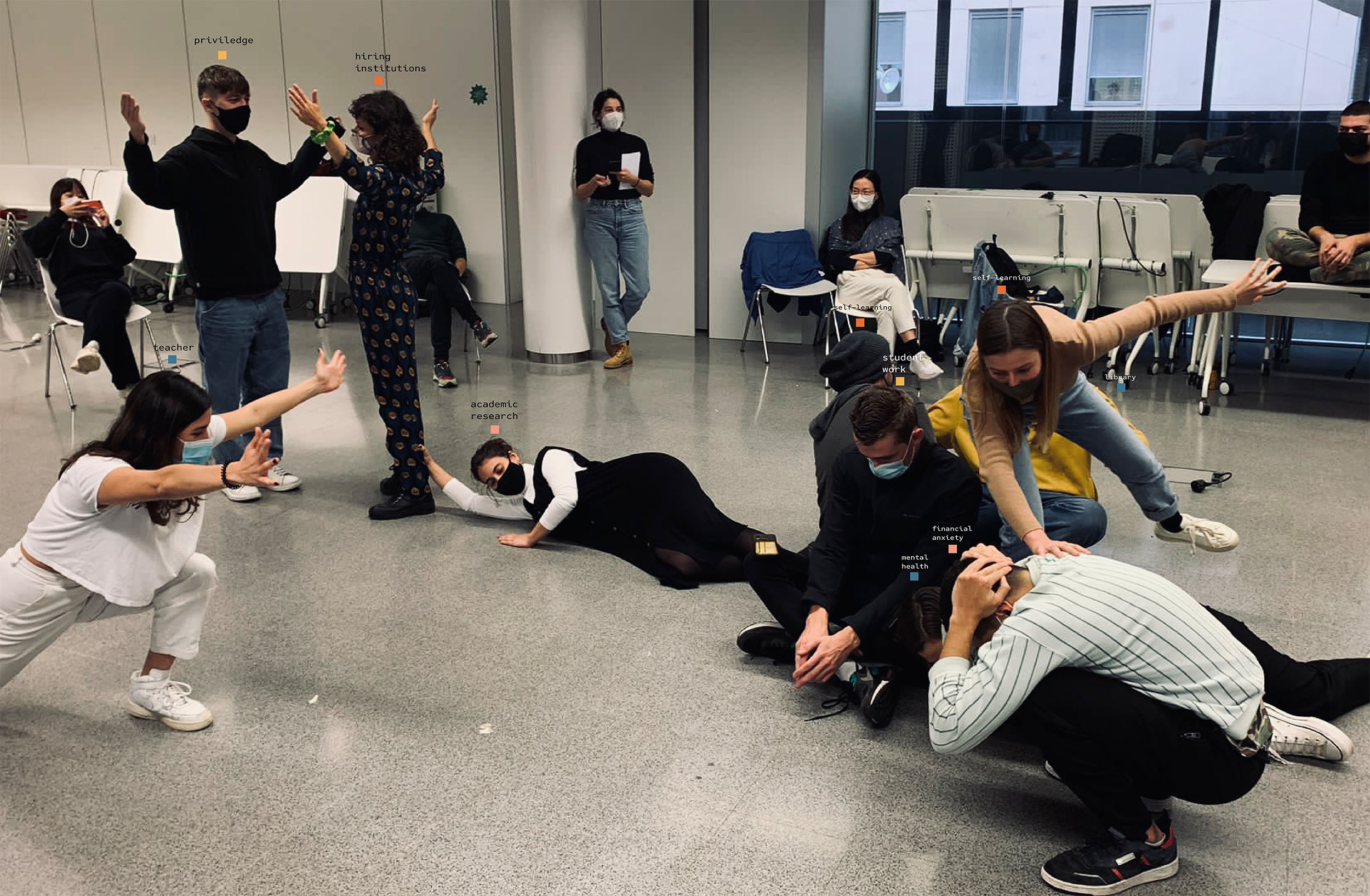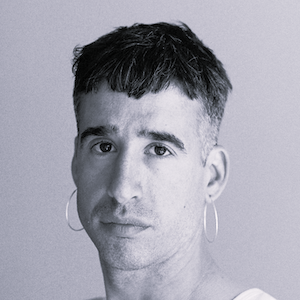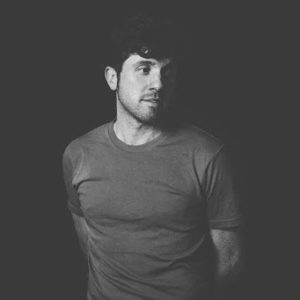
Photo Credit: A member of Holon facilitating a creative session with cooperative housing community.
Both “studio” and “field” concepts are reformulated in a design practice that happens within communities.
Syllabus – Theory
A full week of three hour sessions to kickstart designing with creative communities and engaging with the social body.
Design practice and the role of the designer has been evolving over time. Evolving from an utilitarian perspective at the service of industry (design over) to the integration of the perspective of the human user and it’s needs (design for) and, later on, it’s integration as an active agent in the design process (design with) the agency and expertise of the designer has been critically put into question generation after generation. Presencing the burst of the user-centered bubble and in the face of various existential risks, along these sessions, we will inquire over our role as designers and experience what it means to design within creative communities with the goal of putting our personal projects and capacities at the service of deep transitions.
Learning Objectives
Students after completion of the course should be able to:
- Detect, understand and tackle complex issues through design practices
- Engage with “creative communities” related to the matters of concern
- Situate their practice in the field
- Engage in strategic intervention through prototyping
- Get familiar and confident facilitating groups of people and processes
- Widen their perspective of what community engagement means and learn a technique to work and learn from non human entities
Keywords
Creative communities, strategic intervention, tooling
Syllabus – Practice
Learning from Fab Lab Barcelona’s projects.
Those promoting participatory action-research believe that ‘people have a universal right to participate in the production of knowledge which is a disciplined process of personal and social transformation. In this process, people rupture their existing attitudes of silence, accommodation and passivity, and gain confidence and abilities to alter unjust conditions and structures‘. (Paulo Freire, in Smith et al, 1997:xi)
Fab Lab Barcelona has been involved in many European and local action-research projects with the goal of developing, testing, and implementing alternative and circular strategies towards a (more) locally productive and globally connected city.
In the practical sections of the Community Engagement seminar, MDEF students will be invited to explore principles, methodologies and tools used by Fab Lab Barcelona team and their impacts in community-based projects. The selected local pilot projects will primarily draw inspiration from two recent European projects, Distributed Design and CENTRINNO, with a keen focus on leveraging Fab Lab Barcelona’s extensive expertise in social innovation and community engagement in practice.
While differing in specific objectives and goals, the selected projects have been aligned with the Fab City principles and share a common objective: both expand the purpose of creativity to transform communities, societies and ecosystems, supporting the development of new approaches to innovation, learning and impacting at the local level, while articulating global efforts.
Within this context, during the two sessions, students will practice with methods to support social change whilst focussing down on the purpose of engagement. The practical course will be further enriched with thematic topics addressing circular and collaborative manufacturing, co-creation mechanisms, practice-based capacity building and peer-learning. During the two days of activities, students will also have the opportunity to visit and engage with local community-driven initiatives around Barcelona.
Learning Objectives
This seminar offers students a comprehensive learning experience in the field of community engagement, social innovation, and collaborative practices. Following a practical approach based on that can be applied to their future projects, by:
- Understanding alternative and circular strategies aimed at fostering local productivity while maintaining global connectivity.
- Exploring effective principles to engage with new or existing communities.
- Having access to tailored tools, methodologies, and other resources discussed in real-world scenarios.
- Meeting local actors and inspiring initiatives. Students will have the opportunity to visit and engage with local community-driven projects in Poblenou.
Keywords
Participatory processes, co-creation, community engagement, local production
You can find more information here






